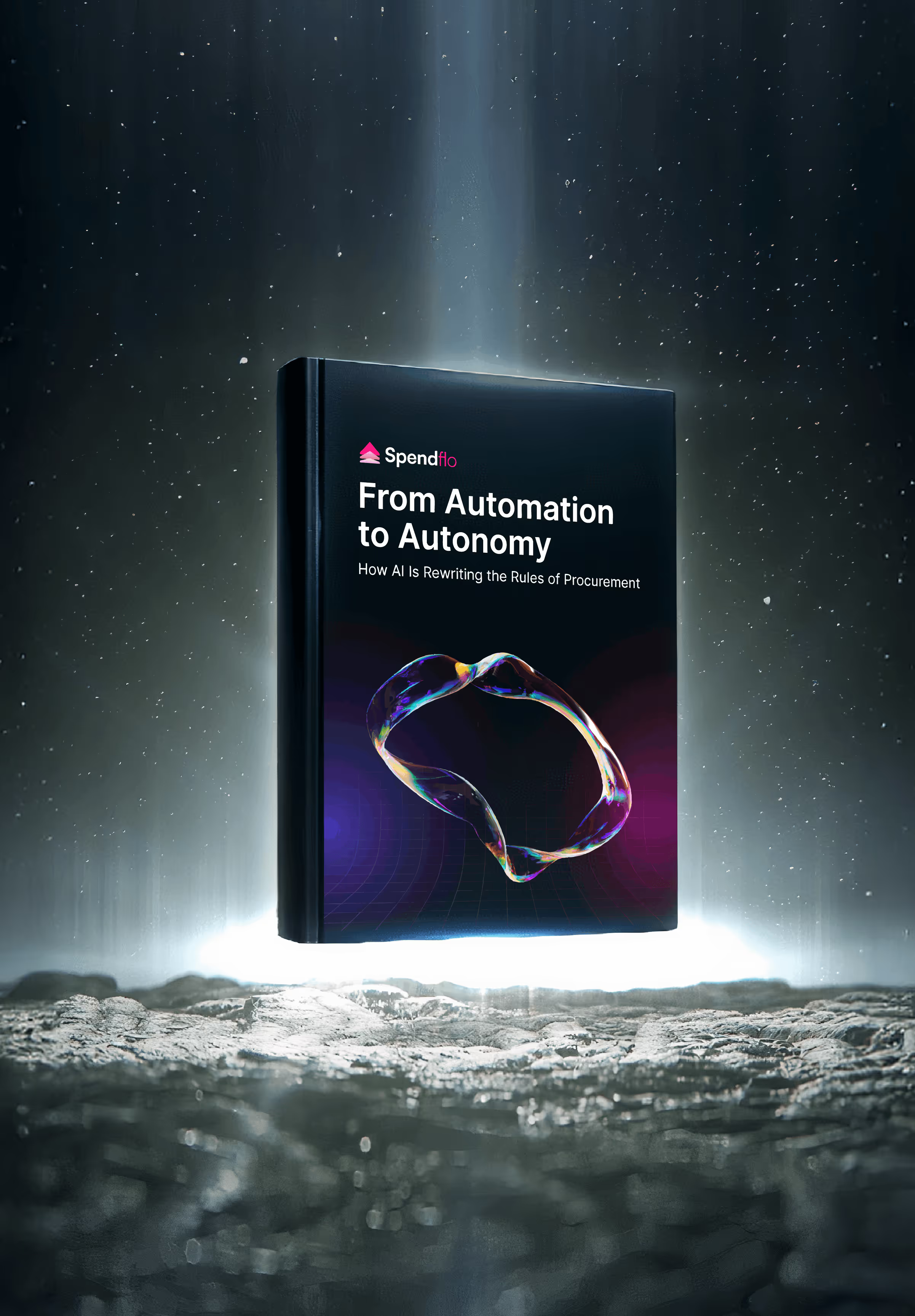

9 Expert Insights on being a Data-Driven CFO from Glenn Hopper

9 Expert Insights on being a Data-Driven CFO from Glenn Hopper
Glenn Hopper, Chief Financial Officer for Sandline Global, attempts to answer a few queries presented by the host, Nivas Ravichandran.


Key Takeaways
- Data aids decision-making.
Data gives form and perspective to a business situation.
Data helps make informed, sound business decisions.
It informs internal processes, defines goals and objectives better.
- It is important to establish a smooth data flow because:
Siloed systems increase turnaround times of business processes.
A seamless data journey creates efficient processes.
Communication between systems reduces manual effort in data porting from one system to another.
- Departmental KPIs can become confusing if not discussed with other departments because
Each department has its goal-driven definition for the same KPIs.
Data silos prevent the standardization of KPI attributes and information source.
The absence of an arbiter may create disparity in KPI measures across departments, increasing discrepancies.
- Glenn Hopper has published a book on corporate finance:
The title is "Deep Finance: Corporate Finance in The Information Age".
It highlights how finance and accounting have evolved since their inception.
The book discusses how technology has impacted this industry and how professionals can benefit from its gifts.
The book explores how finance professionals have the potential to become more than just bookkeepers for a company.
- Data gives companies a competitive edge because:
It highlights the specifics in numbers and figures, helping businesses focus their efforts on meaningful actions.
Reduces the hit-or-miss risks associated with functioning on experience, conditioning, and hunches.
- SaaS is heralding a new mechanism of service delivery
SaaS has drastically improved the efficacy of software delivery to businesses.
Companies leverage the immediate software availability to optimize various aspects of their business processes.
- Making SaaS sellable
Ensure that the SaaS product is integrable with existing ERPs.
Demonstrate through video the ease with which integrations can be done.
- Efficiency or ROI?
Investing in efficiency is better for businesses in the long run.
The changing skill set of finance professionals has huge potential to add value to business operations.
- CFOs need to focus more on:
Getting the right customers.
Retaining customers.
Improving efficiency.
Improve cash and get clients to pay faster.
Transcript
Nivas:
Hello and welcome, Glenn, to the podcast on data driven strategies. Super excited to have you here! Just for the audience, would you like to introduce yourself?
Glenn:
Hello, Nivas! Sure, I am a Chief Financial Officer for Sandline Global, and I’ve been at this company for about a year and a half. This is my second Legal Technology company. I’ve been in a bunch of industries, though. I’ve been in the start-up space since the year 2000, I’ve been in everything from Telecom, Retail, Internet streaming (audio), and legal technology. I'm a finance guy.
I’m a wannabe technologist, I love automation, and I’ve dedicated my career to it. But where I’ve really spent the bulk of my career is, as I like to call it, “Start Up to Scale Up”. It's when you have a business that starts out and is doing well. It doesn’t have a lot of defined processes; it must figure out a way to go from this sort of “small business” mentality to how to get funding or for their product to catch on, or other growth parameters that matter to their niche. Like M&A activity, that they're ready to scale up quickly; that's down there in the trenches trying to define processes for small businesses.
Data and Decision-Making: From Throwing Darts to Moving Chess Pieces
Nivas:
Right. Talking about modern finance, that's something that you keep talking about on LinkedIn. I think we've come across this Saying that “Modern finance could be a game of darts when you don't have the data, and it could be a game of chess when you have the data” What are your thoughts on that?
Glenn:
Yes, I think that's well said. My version of that is it's going from hunch to hypothesis – so, certainly the human element is very important in decision making. The longer you've been in business, the more you've seen similar things, the better your hunch may be; but there's a difference.
“I think the world is round” versus “Here's the data that can prove that the world is round.” Data is very important. It's also important to have that human element, so what I really like to talk about is that data is huge, but you would never turn over your decisions to straight numbers and math. You can't rely on data to just do that, but it lets you make better informed decisions. When you have the data, the target and objective are more defined.
Highlights
✅ Data is central to decision-making.
✅ The human element, however, is still necessary to make informed decisions for business growth.
✅ Leveraging data to generate insights that guide growth strategies help start-ups scale up faster.
Dealing with Data Siloes
"It is very important if you are going down the road to be a data-driven company, that you understand the data you have, and how to pass it from system to system, or at least how to query it and get access to it."
Nivas:
Given today that a CFO is here, I think that with a lot of tools out there, a lot of data gets siloed, and sits with multiple tools, and different spreadsheets. So how does a CFO handle that?
Glenn:
A great question. It's so on the nose! If you think about it, we all want to quit Excel, but we use Excel probably more than anything else out there. That said, you must get the data from somewhere. I think when I go into a business, they already have their off-the-shelf accounting package that they bought from some developer or hired a professional two years ago who would’ve left the picture. There is data in there, but it doesn't talk to anything else. Even in the more mid-sized businesses, you may have a CRM out there, so that when you bring in a customer, you know you’ll get all their information in the accounting system or the project management system; but you don't even take that data or apply it in there.
So, one of the first things I do is, from the very first customer, prospect, or lead touch, I see what data we get there, and see how we can pass it through. It depends on the maturity of the system. It also depends on businesses having a lot of in-house development resources and data resources. Maybe they are dealing with siloed information, and maybe they are making a data lake or data warehouse. It's just a collection of tables that you can query and get different information from. But all businesses must start with an information audit and know what's out there. As they get the technology and expertise in-house, they can look at APIs or other systems in place. To have these systems talking to each other, you need the database schema of what you have in each application, and then you can start using that data.
It's funny if you asked me about automation; I immediately start talking about data because they're so linked – the systems, getting the automation, getting the data – it's all part of the same digital evolution. It is very important if you are going to be a data-driven company. You need to understand the data you have, and how to pass it from system to system, or at least how to query it and get access to it.
Highlights
✅ Siloed data exclusive to a single system can stunt process efficiencies.
✅ Business tools and systems that enable interconnectivity of departments data-wise help smoothen the data journey from end-to-end.
Selecting The Right KPIs (Key Performance Indicators)
Nivas:
Right. Given that a business has multiple metrics or data points across different boxes, the way Marketing defines something would be different from how Sales defines it. How does the CFO wrap around all this data?
Glenn:
You are talking about the situation where Marketing and Sales may define something this way or that, and Operations may define it a third way, and everybody ends up tracking their own KPIs. They may all have different sources of truth, which can become a problem if you're trying to consolidate. So, if you're the finance guy, and you're trying to report on Operations, you're using a different source of truth than the others. It will confuse the KPI system and it's going to end up looking like somebody is doing something to the reality in the wrong way.
The starting principle is democratization of data and go top down to agree on an acceptable metric that we can take information from a particular system. Make it authoritative for the duration it takes us to install an ERP.
Then, to be a data driven company, you need to delegate senior leadership across all the departments to define what the KPIs are, together. This would build a system that can't be gained or manipulated by somebody trying to make their department look better.
Finance should be the keeper of KPIs; I’ve been the owner of that because I don't have a department I’m trying to protect. I’m the scorekeeper for all the departments, and I can be unbiased. I’m not trying to make Sales look better than Operations or whatever. I think that there is an impartiality that comes with the Finance function that makes sense for it to be the arbiter. That said, the finance person does not need to define what these KPIs are for everyone, but they could be the keeper of them.
Highlights
✅ Democratization of data is necessary to establish standard KPI attributes and a single source of truth.
✅ Senior leadership at each department needs to put their heads together and talk about KPIs and how they would treat them.
Deep Finance: Corporate Finance in The Information Age
"...we can move away from this idea where companies think of back-office operations and finance as more of a cost Centre to how we truly add value to the organization."
Nivas:
Shifting gears, we noticed that you've also written a book on financial edge. If you want to talk about it a little bit, do tell us what you've covered in that.
Glenn:
Sure. The book is called “Deep Finance: Corporate Finance in The Information Age,” and it is a book about everything that we've talked about. In the book, I make the argument that we, as Finance people, are Business Intelligence specialists at heart, because we've been analysts for our whole career. What I talk about in the book is, I go all the way back through the history of accounting from the earliest record keeping to the beginning of double entry bookkeeping, and then how it stalled out for hundreds of years. Accounting was what it was: it was your double entry.
Then I talk about the impact of technology on the finance and accounting functions, and it is one of the reasons I’m so passionate about this. Looking at so many different off-the-shelf software applications out there, I can't think of a single function in Finance that I couldn't Google right now and find an automated tool to help me do it; whether it's expense management treasury management, accounts receivable accounts payable, real time closed software, anything.
Think about the Finance function: the company thinks of you as a Cost Centre. Everything you can do can be replaced by a computer. What does that say about the future of your function? How do we redefine what finance and accounting are doing right now? You have these data scientists coming in, these business intelligence people, and everybody wants to be on top of this, but I make a strong argument for Finance. If we, as Finance people, need to get our data science chops up, we need to understand our Python. Whatever the tools that are out there in the basics of data science, we need to be the champions for it. I want to argue in the book about how we can move away from this idea where companies think of back-office operations and finance as more of a cost center to how we truly add value to the organization.
Highlights
✅ Glenn has published a book on corporate finance, "Deep Finance: Corporate Finance in the Information Age."
✅ The book talks about the journey of the Finance and Accounting department – from manual double-entry ledgers to tech-savvy value-added corporate finance services.
Staying Alive in Competition: The Data Insight
Nivas:
Right now, I’m going to quote something from the book,
“Leaders who aren't aware of these opportunities are simply going to be outpaced by competitors willing to adapt to the 21st century and beyond.”
Do you want to elaborate on that a little?
Glenn:
If you look at the business world, think of any SAAS industry. You have these subscribed customers that get you a guaranteed revenue every month. You know your customer acquisition costs and churn rates. If you're a data driven company, you can look at the data and find correlations so you may be able to better define who your target market is, and who you are marketing to. Or you could look at the data and say your typical customer is a business that is between 40 and 44 million in revenue, and has certain number of employees. That helps you refine who you're marketing to. If you look at customer acquisition costs, then you can do something prescriptive to stop them from churn, and that is true value. That is using data to make better decisions.
Highlights
✅ For a company, data-based insights would get the specific details ironed out for consumer targeting, retargeting, retention, conversion, and churn reduction.
✅ The old-fashioned ways must be modernized with data science and business intelligence to stay in the competition.
Software as a Service: A Growth Driver for Modern Finance Leaders?
Nivas:
Do you see SaaS as a growth driver for modern finance leaders?
Glenn:
There are two ways I could hear that question: one would be using SaaS tools that are out there and the second would be productizing and selling SaaS tools. If I think of a function that I need done I can go search the web and probably find a tool that isn’t 100% automated but at least 80% does the job, at least if you're trying to find ways to be more efficient.
Interesting Read: Six Questions to Ask Yourself Before Buying any SaaS Product
In every sector, there are tools that are out there now that sales, operations, HR, all departments, are using. I don't think 10 years ago I would have heard this term, but I can't turn around now or speak at a different conference or talk to a different group of industry leaders without talking about what's in your “Finance stack”. In order to do everything, you have to find these disparate systems and be sure they're able to talk to each other. a SaaS is a part of what we do now; maybe your top Fortune 100 companies are not having to rely on it as much, because they can develop it themselves.
Highlights
✅ SaaS has brought immense accessibility to the scene of automation through subscription-based models.
✅ Businesses deploy SaaS tools across the enterprise for streamlining processes in many departments (sales, HR, marketing, etc.)
Making SaaS Buying Efficient
"I think where people run into hiccups is that the tool is not going to integrate properly with the system they're using."
Nivas:
Right. There are enough SaaS companies that say, “Used by 70% of the Fortune 100”, or “Fortune 50.” You emphasize optimizing the process and finances, what do you think about SaaS buying, as a process that can be made efficient?
Glenn:
I think where people run into hiccups is that the tool is not going to integrate properly with the system they're using. It's one sort of provisioning of the SaaS products, and I think a lot of people have really handled that, but it consists in getting over that bump of convincing the business that you can bolt your product, and that the integration is not going to pull them away from their job and break thing., and you know anytime you're.
Whether it's a manual process or an automated process, anytime you change something you run the risk of an operational impact. But I think, to make it the easiest for the people you're selling to, you can say there is a one-minute video that shows how simple the integration is to hook our product up to QuickBooks and have it integrated. Making people understand not just what the tool is going to do for them but how easy it is to implement it is to help close a lot more deals.
Highlights
✅ A SaaS product that does not offer integration capabilities would be hard to sell.
✅ In addition to integrability, the SaaS product needs to demonstrate the simplicity of integration to make it stand out.
The Main CFO Focus: Efficiency or ROI?
"We're going to take finance to the next level by making it a strategic partner to the rest of the department heads in the business."
Nivas:
So, I think this is a question just from an overall CFO standpoint: ROI versus efficiency, which is a better goal for the CFO?
Glenn:
I like this question because it lets me be a little provocative. As the CFO, I'm always asking people if they want to do something that’s not in the budget, or if they're trying to justify the budget. So, when I answer this question, I immediately say the ROI doesn't matter. I’m holding myself to a different standard than them. But the argument that I use is that you can’t look at the ROI. If you were just trying to come up with an ROI on automation, you could automate the entering of invoices into our system, then eliminate the headcount a month. That's great, but that doesn't do anything to change the thought of finance as a Cost Centre. I'm going to get rid of these people doing mindless data entry work; maybe they each cost 50 grand a year or 75 grand, and so, I’m going to take that salary. Instead, I'm going to apply to a data scientist who I'm going to pay more than I paid to both the employees. However, you're going to get increased value out of it, so we are more efficient.
If all you want is an old-fashioned finance department, we can automate everything, and you can have your books closed in seven days of the end of the accounting period, and that's what accounting does for you. Or, you could make an investment instead of looking at it as an expense, and say we're going to digitally transform our organization. It makes sense for finance to lead this so they're going to get more efficient at doing what they do.
You're seeing more and more of this where a CFO, in a lot of situations, also becomes the COO, and I think it's because we're starting to have reach into Operations outside of Finance. It makes sense for the two functions to be combined. We're going to take finance to the next level by making it a strategic partner to the rest of the department heads in the business. That is adding value at those management meetings, adding value at the board meetings, and helping to direct where the company is going because we've shifted our skill set.
Highlights
✅ The skills of finance professionals have shifted from number-jockeys to decision-catalyzers.
✅ By investing in digitally transforming finance, the company can add value at each step in the business process.
CFO Action Plan for The Current Economic Downturn
Nivas:
Right. I love that answer, Glenn. Then, maybe this is more relevant to the current economic situation, that we see maybe two or three things that you're doing in this current economic downturn situation that's happening today.
Glenn:
Yes. For so long, money credit was so loose, money was so cheap, that debt was the easiest thing in the world to do for anyone. But I think valuations and availability of money have made business easy for so many of us, for the last three decades. You look back at the Great Recession, it was nothing but a blip. Now that we're with trillions and trillions of dollars, there was this mentality of “Growth at any cost.” Whether you're a B2C business or an Internet consumer business; it was all about bringing on more users. It didn’t matter about revenue, because we just had to get to this user base to get our valuation. Three and a half years down the road, they were going to be cash flow positive.
When you get to this downturn, I think we must step back and think about the real business fundamentals that we've been able to ignore for a long time. We must look at those margins and we must think of their worth.
The old phrase, “Cash is king,” is very important now, because you don't know where money is coming from. The companies who can figure this out and remain solvent are going to come out stronger on the other side because it's going to force us to be more efficient at what we do.
Interesting Read: How to Reduce Your SaaS Costs?
- Getting your clients to pay faster.
- Focusing on things like how easy it is for customers to pay
- What you need to do to retain the customers.
- Make sure that you are driving the right things to meet what the market is telling you to do.
Nivas:
Well, that makes a lot of sense. Even at the CFO leadership Council event that we were at, it started off with the “Cash is king,” and it resonated. This was super insightful; I think we had a really nice chat on how to be a data driven CFO. Thank you so much for coming onboard. We will have a link for the book, as well as part of this recording. Thank you so much again for taking the time to do this.
Glenn:
Thank you, I really enjoyed it.















.png)










.avif)





